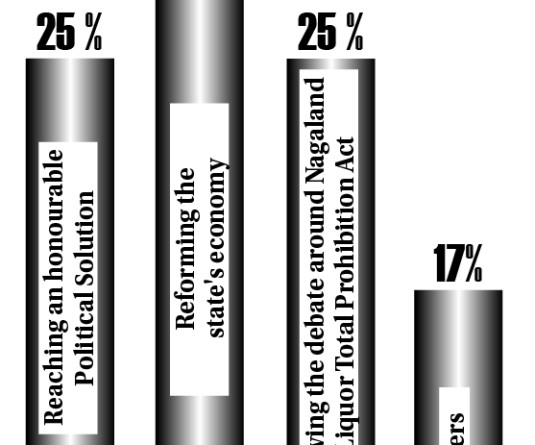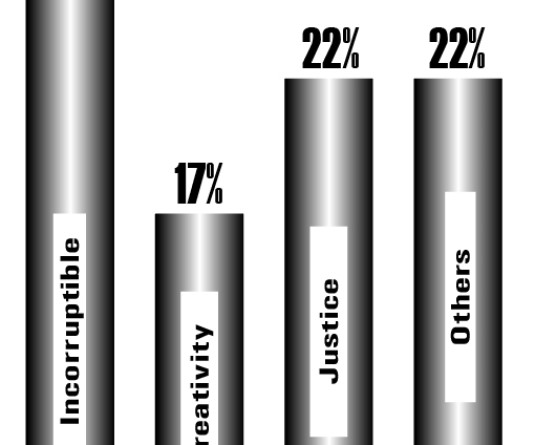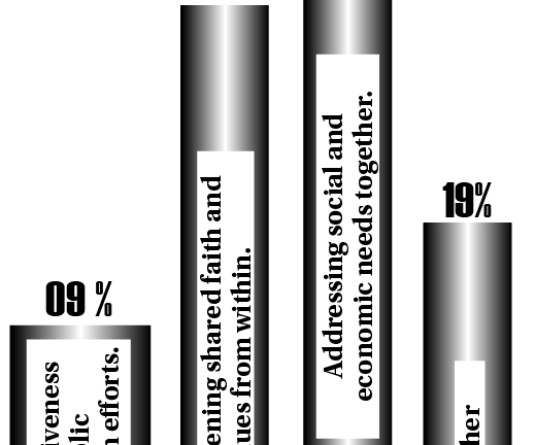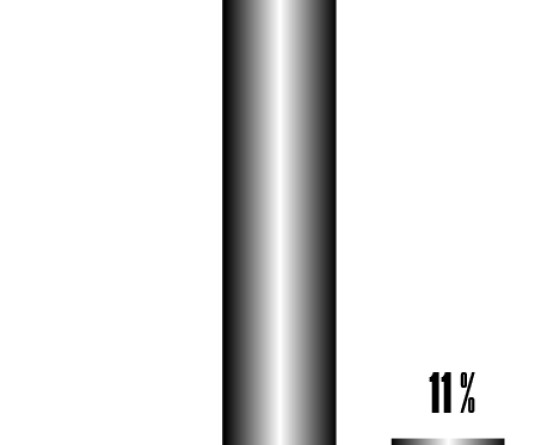
• A decade or three ago an eavesdrop in any Naga kitchen would record a family dialogue running in their respective indigenous languages. Along the course, modern education and western culture has overruled our linguistic status. At present scenario the census of indigenous language users are gradually decreasing and must we not forget that even ‘languages with script yet without speakers are prone to extinction.’ The children belonging to different communities are adamant to communicate in their respective languages in pursuit of more diverse form of expression and lack of attention from the parents/elders massively impacts their disinterest in Indigenous dialects. When the responsibility of passing on the cultural heritage is handed to the aforementioned younger generation; ‘language’ which is the core pillar keeping the indigenous monument standing will eventually fall out. The union of all communities in Nagaland must rewind back in time and allow the same tools and measures which distracted the population from preserving the tribal/indigenous languages to now redirect and redeem the significance of keeping our mother tongue alive and talking. Beginning from education patterns- some of the languages are being full-fledged studied and promoted to research scholar level, the same must be done for every language in Nagaland. One section of practical approach which the communities can no longer ignore as an elephant in the room is the stage of media where music, art, motion pictures, media literature, comic series, dramas series and many more are delivering unending waves to be the domain influencer to this generation and in such outset using songs, art, motion pictures, series, stage plays and literature in all aspects to redirect and shift the focus of the upcoming Nagas is visibly an opportunity in disguise for the redemption of indigenous languages in Nagaland to trigger some sense of cultural revolution. For indeed; 'cities without art and artists are dead cities' likewise communities surviving by the mercy foreign languages are bound to perish. Nagas might perhaps not have the most classified history or most complex architectural buildings to look back to but the little uniqueness we have- we must hold on to it whatever it takes.
• Naga culture is slowly eroding away because we have become materialistic and are slowly getting assimilated into Indian society and values. We cannot promote our Naga languages unless we also safeguard our culture and rights.
• Make indigenous language a compulsory subject in school, write books in indigenous language, set up Language Translation Centre in collaboration with the a college/University, develop mobile apps for interactive learning of indigenous language, word processing software in indigenous language compatible with MS Office, integrate indigenous language with Google translate etc
• There should be a systematic agenda for revitalization n development of Naga indigenous languages led only by people with rich linguistics knowledge and background. Initiatives can be taken in the form of organizing seminars n workshops sanitizing the people on the importance of local language and how important it is to preserve it .The target group should start from early as school going children. People with linguistics educational background should be encouraged to do more research and write books on their findings so that it can be recorded for future references n can also play an important role in reaching out to more people.
• Nagamese is just a broken language of Assamese, it will be better if Nagas come up with one common language, and our mother tongue is must to every tribe, I see lots of parents started talking their children in western language so called English, of course English is also must but it's a part of shame if we don't know our own tribal language, it just shows we are losing our forefathers culture.
• I think we should have a common Naga language like Manipur. Let the intellectuals come together n make a common Naga language. Nagamese cannot n is not a Naga language, it is borrowed from everywhere. If we have a common Naga language it will distinct us from the rest. I really appreciate the Manipuris because they have a common Manipur language and it is spoken everywhere there and that way you don’t have to worry about your generation losing in touch with Naga language.
• Globalization and the modern culture have crept into Naga society very suddenly and very quickly in the last 7 to 10 years. Like every globalizing society, the language gets affected first and especially in our case since we do not have a written script. Our Naga languages are under a lot of pressure and if we are not careful they will become extinct. Since Nagamese is the market language, it is likely that Nagamese will get promoted more and more and this will affect our own native language even more. We must introduce our own language from a young age. We need to create learning tools to promote our own languages.
• Speak in your dialect to your children, dear parents
• We should approach the elders of the community to orally record the original (pure) dialect of our community and later put it into print because these days most words are 'modified' according to our own convenience. We could also record the folk songs that were originally sung and its meaning interpreted.
• I guess money, politics and bad roads are the only factors that concern the majority
• Naga languages should be encouraged in the preschool level.
• To promote and encourage Naga languages, the attitudes must first change. The existing judgemental attitude and behaviour will not help.
• Naga languages are under threat and are in danger of extinction. In places like Dimapur and Kohima, the use of Nagamese is greatly undermining our own language. Something needs to be done to overturn this trend.
• It should start from the family. When the child starts to speak and learn to communicate, parents should be able to slowly teach them the basics of one’s culture and heritage in their own language. In the cases where both parents are from different villages or places, they should be able to teach both their language and culture to the children. It might take some time but it is important for the child to learn their parent’s heritage. In today’s context, in almost all the conversations, there is usage of a foreign language, mostly English and Nagamese. This kind of practices should be avoided. Naga people have very strong community-based bodies such as the councils. Such bodies can also play an important role in revitalizing and developing indigenous languages by organising story-telling sessions and interaction among the younger and older generation. There should be more conversation and dialogues. Another doable option would be organising competitions in our indigenous language. At present, mother language subject is included in the school curriculums; however, it is not enough. There is a great need to revise and get better with the module of indigenous language taught in educational institutions. We also need more writers who can write in their own mother tongue. Besides the learning and teaching part, as individuals and community we all recognise that language is one of the factors that generates and develop a sense of belonging to a particular identity.






